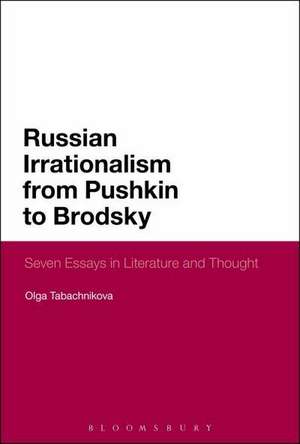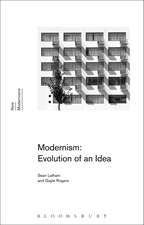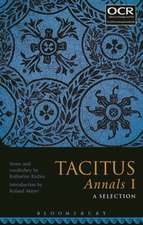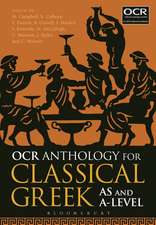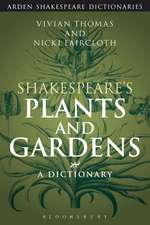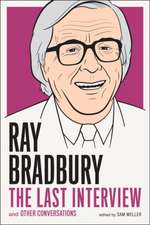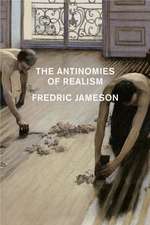Russian Irrationalism from Pushkin to Brodsky: Seven Essays in Literature and Thought
Autor Dr. Olga Tabachnikovaen Limba Engleză Hardback – 22 apr 2015
| Toate formatele și edițiile | Preț | Express |
|---|---|---|
| Paperback (1) | 257.86 lei 6-8 săpt. | |
| Bloomsbury Publishing – 26 oct 2016 | 257.86 lei 6-8 săpt. | |
| Hardback (1) | 774.35 lei 6-8 săpt. | |
| Bloomsbury Publishing – 22 apr 2015 | 774.35 lei 6-8 săpt. |
Preț: 774.35 lei
Preț vechi: 1113.26 lei
-30% Nou
Puncte Express: 1162
Preț estimativ în valută:
148.16€ • 154.71$ • 122.35£
148.16€ • 154.71$ • 122.35£
Carte tipărită la comandă
Livrare economică 15-29 aprilie
Preluare comenzi: 021 569.72.76
Specificații
ISBN-13: 9781441171207
ISBN-10: 1441171207
Pagini: 288
Dimensiuni: 152 x 229 x 18 mm
Greutate: 0.55 kg
Editura: Bloomsbury Publishing
Colecția Bloomsbury Academic
Locul publicării:New York, United States
ISBN-10: 1441171207
Pagini: 288
Dimensiuni: 152 x 229 x 18 mm
Greutate: 0.55 kg
Editura: Bloomsbury Publishing
Colecția Bloomsbury Academic
Locul publicării:New York, United States
Caracteristici
Explores the tendency in Russian thought and literature to subvert the rational and systematic foundations of Western art and civilization.
Notă biografică
Olga Tabachnikova is a Lecturer in Russian Studies at the University of Central Lancashire and Visiting Research Fellow at the University of Bath, UK. She holds a PhD in Mathematics and a PhD in Russian Literature and Philosophy. Previously she worked as a Research Officer and a Lecturer in Russian Cultural Studies at the University of Bath, and held a Leverhulme Early Career Fellowship at the Russian Department of the University of Bristol, UK, as well as the Entente Cordiale Scholarship to the Sorbonne, France.
Cuprins
A Word of CautionIntroduction1. The Language of Irrationalism?2. Russia and the West. The Power of Illusion3. On Russian Dreamers4. Russian Eros: Love in the Context of Moral Philosophy5. Towards the Question of the 'Man of Nature' and 'Man of Culture' in Russian Literature6. Cases of Subversion. Chekhov and Brodsky: Under the Veneer of Rationalism (or: On the Concepts of Hot and Cold Blood as Philosophical Categories) 7. Rebellious Tradition: Russian Literary Laughter, between Poetry and Pain BibliographyIndex
Recenzii
Olga Tabachnikova moves gracefully through a huge range of sources and comes up with original insights. An important and enjoyable book.
Aside from providing interesting and fresh insights for a possible definition of Russian irrationalism, one of this volume's virtues is that it views the rational/irrational antithesis not so much through the lens of categories taken from the Enlightenment or from nineteenth-century philosophy, but from a contemporary and, in many ways, more complex and multifaceted perspective.
A rich and rewarding book. The most productive way to read it is to stop looking for a consistent theory of irrationalism, to suspend judgement about the observation of scholarly norms, and enjoy each essay on its own considerable merits. Tabachnikova is supremely at home in the modern Russian literary tradition and writes about it with a fluent confidence. She is consistently thoughtprovoking and engaging, even where one disagrees with her.
Taking as a premise that for Russians, thinking is both intellectual and spiritual activity, Olga Tabachnikova embarks on a wide ranging study, skillfully navigating between her literary, philosophical and artistic sources, and weaving a nuanced and exhilarating tapestry of Russian encounters with the existential and mundane, humorous and tragic.
The title of this book does not adequately signal its scope: these essays comprise a wide-ranging meditation on Russian cultural history, Russian language and literature, and 'Russianness.' At their best, they interrogate the conventional terms of such discussions. An opinionated, bold work with many surprising juxtapositions.
Aside from providing interesting and fresh insights for a possible definition of Russian irrationalism, one of this volume's virtues is that it views the rational/irrational antithesis not so much through the lens of categories taken from the Enlightenment or from nineteenth-century philosophy, but from a contemporary and, in many ways, more complex and multifaceted perspective.
A rich and rewarding book. The most productive way to read it is to stop looking for a consistent theory of irrationalism, to suspend judgement about the observation of scholarly norms, and enjoy each essay on its own considerable merits. Tabachnikova is supremely at home in the modern Russian literary tradition and writes about it with a fluent confidence. She is consistently thoughtprovoking and engaging, even where one disagrees with her.
Taking as a premise that for Russians, thinking is both intellectual and spiritual activity, Olga Tabachnikova embarks on a wide ranging study, skillfully navigating between her literary, philosophical and artistic sources, and weaving a nuanced and exhilarating tapestry of Russian encounters with the existential and mundane, humorous and tragic.
The title of this book does not adequately signal its scope: these essays comprise a wide-ranging meditation on Russian cultural history, Russian language and literature, and 'Russianness.' At their best, they interrogate the conventional terms of such discussions. An opinionated, bold work with many surprising juxtapositions.
